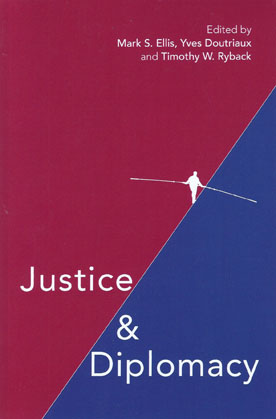We are now closed for the Christmas and New Year period, returning on Monday 5th January 2026. Orders placed during this time will be processed upon our return on 5th January.

Diplomacy is used primarily to advance the interests of a state beyond its borders, within a set of global norms intended to assure a degree of international harmony.
As a result of internal and international armed conflicts, the need to negotiate peace through an emerging system of international humanitarian and criminal law has required nations to use diplomacy to negotiate 'peace versus justice' trade-offs.
Justice and Diplomacy is the product of a research project sponsored by the Academie Diplomatique Internationale and the International Bar Association, and focuses on specific moments of collision or contradiction in diplomatic and judicial processes during the humanitarian crises in Bosnia, Rwanda, Kosovo, Darfur, and Libya.
The five case studies present critical issues at the intersection of justice and diplomacy, including the role of timing, signalling, legal terminology, accountability, and compliance. Each case study focuses on a specific moment and dynamic, highlighting the key issues and lessons learned.